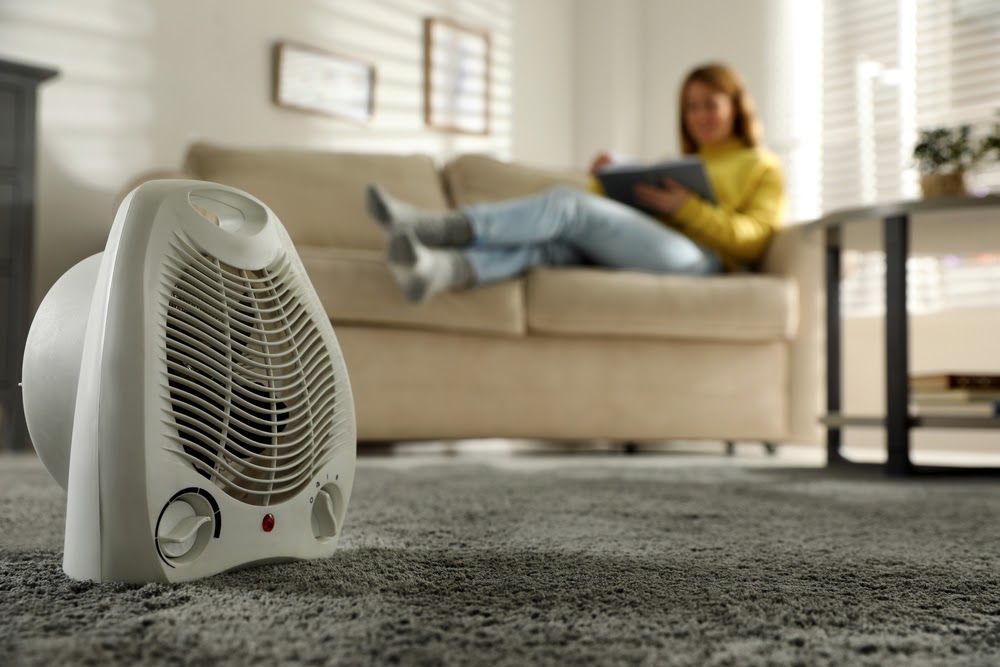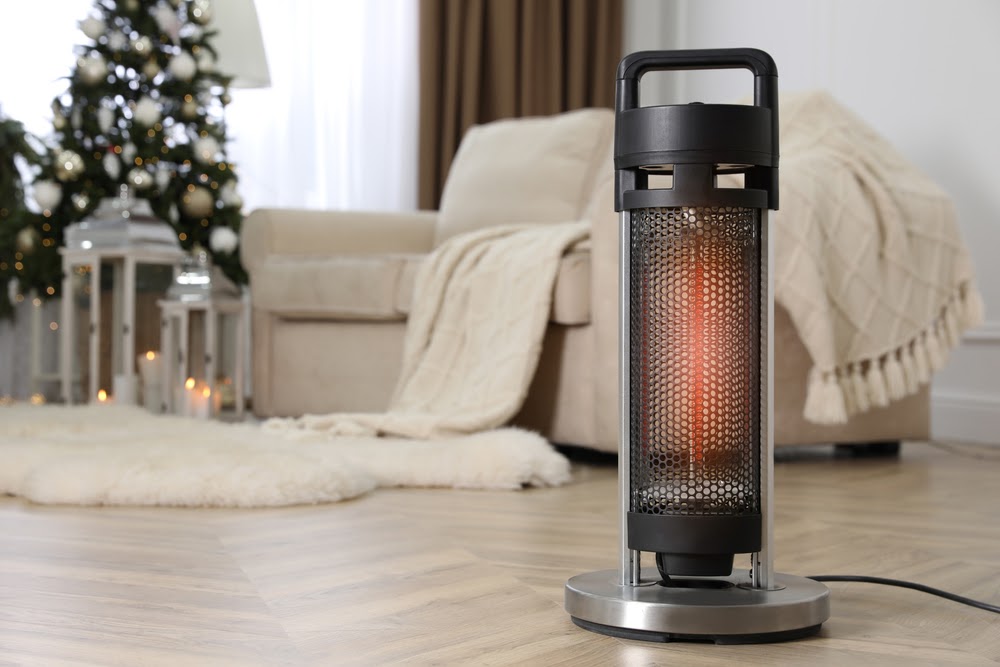A Guide to Choosing An Energy Efficient Portable Heater
Utility bills tend to rise in the winter, which is when more people rely on their central heating systems to stay warm. In fact, the average U.S. household spends anywhere from $500 to $1,500 on heat during the winter months. One way to lower heating expenses without sacrificing your comfort is using an energy efficient portable heater.
When Should You Use An Energy Efficient Space Heater?
Using an energy efficient space heater can save energy and lower your monthly utility bills under certain circumstances. But in some cases, using your central heating system is actually better for the environment and your wallet. Because of this, it’s important to understand when it’s appropriate to use an energy efficient space heater and when you should turn on central heating instead.
You should use an energy efficient space heater if:
- You are trying to stay warm in a space without central heating, such as a garage or basement.
- Your central heating system is turned off and you only want to warm up one or two rooms in your home.
In these situations, using an energy efficient space heater as opposed to your central heating system will save energy.

What Are the Different Types of Low-Cost Energy Efficient Heaters?
There are several different types of low-cost energy efficient heaters, so it’s important to understand your options before you choose one. The two main categories of energy efficient portable heaters are:
- Gas-Powered Portable Heaters
- Electric Portable Heaters
Gas-Powered Portable Heaters
Gas heaters create heat by burning fuel such as propane, natural gas, or kerosene. There are a few types of gas-powered portable heaters, including:
- Unvented portable heaters: These gas-powered portable heaters release potentially harmful gases into the air, so they are not designed for indoor use. However, they can provide a great deal of warmth to people outdoors.
- Vented portable heaters: These gas-powered portable heaters also release harmful gases, but they can be used indoors if you install a vent into the wall that directs the exhaust gases outside.
- Portable gas stove: This type of portable gas-powered heater resembles a fireplace and is easy to move from room-to-room.
Electric Portable Heaters
Electric portable heaters are designed to convert electrical energy into heat. Some examples of electric portable heaters include:
- Fan heaters: This light and portable option uses electricity to heat up metal coils, which then transfer the heat to the air inside the room.
- Ceramic heaters: This type of heater is designed with ceramic plates that are attached to metal coils. Electricity heats up the metal coils, which pass the heat along to the ceramic plates. Eventually, the ceramic plates will release the heat into the air.
- Infrared space heaters: This electric heater releases electromagnetic waves into the air to heat up a small space. This is an effective way to generate heat. In fact, it is similar to how the sun heats the Earth.
- Oil-filled space heaters: This type of electric heater contains diathermic oil inside. Once the oil gets hot, it begins to circulate through the heater’s columns. This raises the surface temperature of the columns, causing them to release heat into the air.
- Panel space heaters: Just like an oil-filled space heater, a panel space heater works by increasing the surface temperature of the device until heat radiates off of it. But instead of oil, a panel space heater uses electrical currents to produce this heat.

What is the Best Energy Efficient Heater?
You should understand the pros and cons of each option before choosing the most energy efficient heater for your home.
Electric portable heaters are far more energy efficient than gas-powered portable heaters. They are also safer to operate since they don’t produce harmful gases, which means they can also be used in enclosed areas.
However, electric portable heaters must be positioned close to an electrical outlet, which may be inconvenient. Because they rely on electricity, these heaters will not work in the event your electricity goes out during a bad winter storm. These heaters can also take longer to heat up than gas-powered heaters.
Gas-powered heaters are not nearly as energy efficient as electric heaters, but they typically cost less to operate. So even though you are not saving energy, you might be able to save money by using a gas-powered heater. But it’s important to note that gas-powered heaters cost more than electric heaters, so you must be willing to pay more upfront to save money later.
One drawback of gas-powered heaters is they must be used in ventilated spaces. These heaters are also bulkier, which makes them harder to move from room-to-room.
The short answer? Electric heaters are more energy efficient, easier to move, and safer to use. But there are some benefits to gas-powered portable heaters, including low operation costs. Keep these pros in minds when choosing which energy efficient space heater is right for you.


